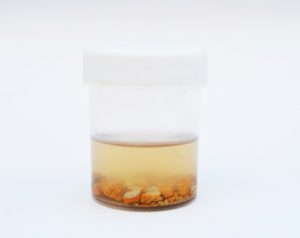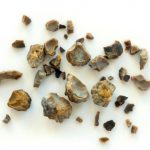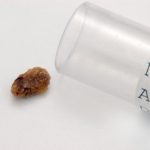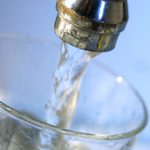 Calcium supplements increase the risk of kidney stones, but risk lowers with vitamin D. Calcium is known to be a contributing factor in the development of kidney stones, but on the other hand, too little calcium can also contribute to the formation of kidney stones.
Calcium supplements increase the risk of kidney stones, but risk lowers with vitamin D. Calcium is known to be a contributing factor in the development of kidney stones, but on the other hand, too little calcium can also contribute to the formation of kidney stones.
Calcium oxalate – the culprit behind kidney stones – can be found in many of the foods we eat, not just dairy products. If a person consumes foods containing calcium and takes additional calcium supplements, they are increasing their risk of kidney stones. The key is to maintain a proper balance of calcium in the body, and to do that vitamin D is required.
Calcium supplements linked to risk of kidney stones
Advertisement
 For the latest study, researchers reviewed 24-hour urine collections and CT images from patients with a history of kidney stones. From the total, 1486 patients were supplementing with calcium, 417 were supplementing with vitamin D, and 158 patients did not use any supplementation.
For the latest study, researchers reviewed 24-hour urine collections and CT images from patients with a history of kidney stones. From the total, 1486 patients were supplementing with calcium, 417 were supplementing with vitamin D, and 158 patients did not use any supplementation.
Those who supplemented with calcium saw lower total calcium and oxalate in the urine, and blood levels were unaffected. On the other hand, these patients also saw the quickest growth rate of kidney stones. Vitamin D supplementation saw decreased urinary calcium excretion as well as a decrease in stone growth. Researchers feel that supplementing with vitamin D may be beneficial for reducing the risk of kidney stone formation.
Investigator Christopher Loftus, M.D., said, “While taking supplemental calcium has associated positive effects, these results suggest that supplemental, as compared with dietary, calcium may worsen stone disease for patients who are known to form kidney stones.”
Vitamin D and kidney stone disease
 Previous reports revealed that vitamin D may be beneficial in the prevention of kidney stone disease. One in particular studied 2,012 participants and found no association between dosages of vitamin D and an increased risk of kidney stones.
Previous reports revealed that vitamin D may be beneficial in the prevention of kidney stone disease. One in particular studied 2,012 participants and found no association between dosages of vitamin D and an increased risk of kidney stones.
The participants were studied over the course of 19 months and only 13 individuals developed kidney stones. Study lead, Dr. Cedric F. Garland, said, “Mounting evidence indicates that a vitamin D serum level in the therapeutic range of 40 to 50 ng/mL is needed for substantial reduction in risk of many diseases, including breast and colorectal cancer. Our results may lessen concerns by individuals about taking vitamin D supplements, as no link was shown between such supplementation and an increased risk for kidney stones.”
Highlighted risk factors were being an older male with a higher body mass index (BMI). Researchers suggest those with a higher BMI require higher vitamin D supplementation.
Recommendations to prevent recurrent kidney stones
 Kidney stones are touted as being one of the most painful sensations a person can undergo – even more so than childbirth, depending on whom you ask. If you’ve already had kidney stones in the past, you will definitely want to prevent them from reoccurring.
Kidney stones are touted as being one of the most painful sensations a person can undergo – even more so than childbirth, depending on whom you ask. If you’ve already had kidney stones in the past, you will definitely want to prevent them from reoccurring.
The primary means of preventing kidney stones are through diet and drinking plenty of fluids. Research from the American College of Physicians (ACP) also conducted clinical research in order to best prevent kidney stones.
The researchers suggest that in those with a history of kidney stones it’s important to increase fluid intake to urinate up to two liters a day. They also suggest that if fluid intake alone doesn’t reduce the risk of stones, consider pairing it with medication, such as a diuretic, citrate or thiazide.
The president of ACP, Dr. David Fleming, said, “Increased fluid intake spread throughout the day can decrease stone recurrence by at least half with virtually no side effects. However, people who already drink the recommended amount of liquids, or when increased fluid intake is contraindicated, should not increase their fluid intake.”
Although the ACP research didn’t find a difference between consuming tap and filtered water, they did find that a reduction in soft drink consumption is beneficial in reducing the risk of kidney stones.
The use of medication as listed was best to prevent kidney stones from calcium, but comparison studies between drugs was not done, so the researchers don’t have recommendations for the best one.
Dietary changes were also suggested in the findings. Reducing dietary oxalate and animal purines and protein is important for preventing kidney stones. This means you need to minimize your intake of the following foods: chocolate, beets, nuts, rhubarb, spinach, strawberries, tea, and wheat bran.
Lifestyle changes to prevent kidney stone recurrence
Easy lifestyle changes to better prevent kidney stone recurrence include:
 Drink more water – 2.5 to three liters a day. Drink throughout the day. Stick with neutral beverages and avoid soda. Urinate up to 2.5 liters a day. Urine should be light yellow.
Drink more water – 2.5 to three liters a day. Drink throughout the day. Stick with neutral beverages and avoid soda. Urinate up to 2.5 liters a day. Urine should be light yellow.- Modify your diet – minimize foods with oxalates, purines and animal proteins. Eat a balanced and varied diet. Eat plenty of fruits, vegetables and fiber. Consume recommended calcium – not more or less. Minimize salt intake.
- Maintain a healthy weight.
- Avoid stress.
- Exercise regularly.
Related Reading:
5 things that increase your risk of kidney stones
Kidney stones are incredibly painful stones which form inside the kidneys. There are many reasons why a kidney stone would develop, such as lack of water, too much calcium build-up and excess uric acid which can occur from a high-protein diet. Continue reading…
Advertisement
Natural remedies for kidney stones
Often compared to a pain far worse than that of giving birth, kidney stones are no laughing matter. With no one cause for kidney stones, they can affect anyone at any time. Typically kidney stones are the formation of uric acid, calcium and oxalate into crystals. Continue reading…
Sources:
http://www.sciencedaily.com/releases/2015/10
http://health.ucsd.edu/news/releases/Pages/2013-10-17-vitamin-d-and-kidney-stones
https://www.acponline.org/newsroom/kidney_stones
